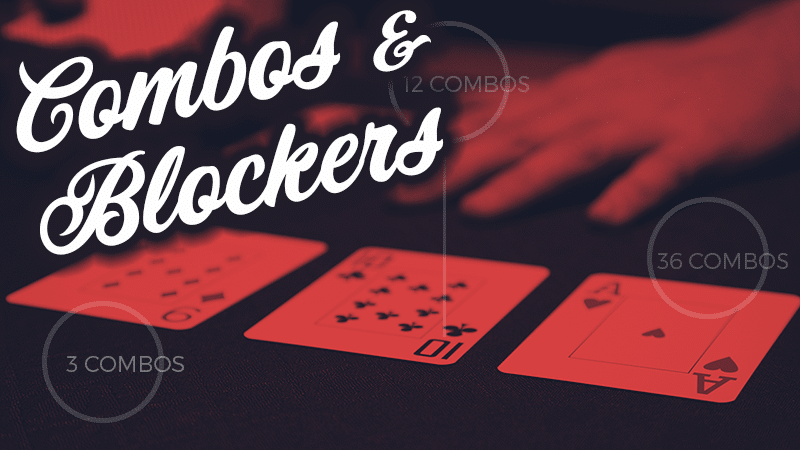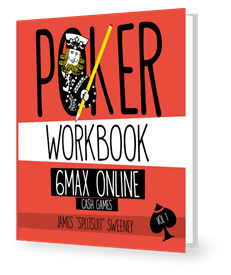This hand is from 100NL where hero has pocket Queens against a tilting player. Knowing when to hold-on for dear life with a big pocket pair is crucial when playing vs these players – and in this case we need to make a +EV decision on a nasty river card. In this spot we are 4-handed, villain just lost 3 hands in a row and visibly tilty, and we are facing a raise from the big blind…
Christopher says in his write-up that the villain here had lost 3 hands in a row and seemed a bit tilted. That’s definitely good information for us to have, but if that’s the case, I definitely want to see a larger raise size here. I really want to see you punish this dude. You’re 4-handed, you have queens, awesome. These are huge factors for our hand. But we have someone who’s tilted, who’s probably going to be more inelastic. We have a value hand. Let’s just start smashing and going from there.
Raising something like six would be much better in my opinion. I think four is okay. I just think it’s a little suboptimal considering the information you’ve given. So we end up getting called, end up going heads-up to it. Hero decides to bet, and, of course, we end up getting called. Of course, that’s just standard from someone who’s tilty and probably going to be taking a lot of flops off.
In this situation, of course, we have two different options. We could just go for the normal betting route, which, of course, is what it looks like hero’s going to be doing here, where we just bet big on flop, turn and river, go for pure, pure, big value and go from there. The other option, of course, is looking for a check-raise somewhere along the way, trying to induce bets, but also trying to induce extra three bets or extra lightness or extra big pots that can get explosive, rather than just going for a bet, bet, bet. Maybe it’s bet and then check, raise, turn, or maybe it’s check, raise, flop, and go from there.
This is the kind of situation where I would much rather look for a check-raise on the flop. I think the check-raise on the flop is a really, really pretty option. I think that’s one where 9-3 is going to bet a large chunk of his hand, so he gets some extra value from pure air, which is always great. And also the times that he has something like Jx or 9x or a draw, even though there aren’t a ton of draws, considering we have QQs. So it blocks things out like QT, KQ, and all that kind of stuff. This is a kind of situation where I just think that he’s going to make a lot of mistakes against it. If you check-raise small, so say we check, he bets something like 6 or 7, we check-raise up to something like 16 to 20, I think that gives a lot of room for him to think, ‘Wait a second, that looks like AK, I’m just going to shove it here’ and then we snap it off.
So if you never at least considered the check-raise in spots like this, it’s definitely a really pretty option, especially against the kind of people that are tilted, that are going to talk themselves into doing some really, really silly stuff, don’t just take the default bet, bet, bet. It’s going to be very difficult to get stacks inside when check-raising can be a very, very valid option. If nothing else, you make money the times they miss, when they just stab at it. But you can also make home-run potential a lot of different ways.
In this exact situation, end up getting called, go to the turn, hero bets again. Again, a nice big bet, so it really looks like we’re taking this bet, bet, bet line, all big sizes, happy with that. If we’re going to take the bet, bet, bet line, end up getting called, and go to this and trust in river card.
In his write-up, Christopher says this:
“The river brings probably the worst card in the deck. I don’t feel I get by worse here, so I decide to check and see what he does. He bets out about half pot. I feel like if he had two pair, he probably would have raised the turn. I also feel like he doesn’t have many jacks in his range, since he has a decent PFR and would have raised two broadways preflop. JT is probably the only thing I have to be afraid of because I think if he bets any 9 here and bluffs with his whiff draws. So I call.”
I agree with a lot of stuff in this write-up. Yes, I think he does not have a tremendous amount of Jx, if nothing else, because he didn’t raise pre-flop. If he does have a PFR, I think he’s definitely raising AJ, KJ, QJ, JT, all that kind of stuff pre-flop, which really doesn’t leave a tremendous amount of Jx left. If there is a tremendous amount of Jx left, somehow this person shows up with J7 or J6, that also means there’s probably a tremendous amount of 9x as well. And then again, we’re back to there’s a lot more 9x combos than there are Jx combos, and that’s a good thing for us. Just in general, if we look at this spot, it’s 4-handed. I have an over pair. My opponent is tilty. When these factors are true, it essentially takes a crowbar to get me to release my hand. It’s just not going to happen. So my only real question on the river is, is it more profitable to check-call, or is it more profitable just to bet it myself?
Now, Christopher here is making the assumption that there’s a decent amount of whiff draws in his opponent’s range. And if that’s the case, then, sure, it definitely makes a lot more sense to check, because if you bet, he folds the whiff draw. If you check, he probably bets the whiff draw and tries to turn it into a bluff. So that’s a great thing for us.
The only issue is that there shouldn’t be a tremendous amount of whiffed draws. Mostly because we have queens, so it blocks out QT. If this person’s tilty, they probably play draws more aggressively earlier in the hand. So I don’t think this is the kind of situation where we’re looking at a ton of whiff draws. If we are, they’re just going to made in very interesting and weird ways. So it would really just depend on how tilty you think he is. And the other thing with the 9 is that if my opponent has the 9 and I check what bet they would bet for with 9x, and if I bet myself, what number would they call with 9x?

I think players are far more likely to call. The fishy players especially are far more likely to call a big bet with 9x than they are to bet big with 9x themselves if we check to them. So I think even if the villain has 9x, we leave money on the table here because we could have bet this for 45 or 50 and gotten called by 9x, versus checking, facing a $30 or $40 bet and now all of a sudden, we’re leaving money on the table against that same hand that would have made a bigger call otherwise.
It really, at the end of the day, comes down heavily to how often you think this person is bluffing and what are they bluffing with. So if you think they’re bluffing a lot, making the check-call makes a lot of sense because they’re just not going to be able to call you very often on the river, but you can definitely check, induce that bluff and pick it off and feel very comfortable. And in this situation, villain actually ends up showing up with A2, which is one of those weird backdraws that came through. So, again, it definitely kind of proves that this person is a little bit tilty and doing some pretty a-typical stuff, but, again, that river discussion is really important for figuring out which is more valuable. Is it more valuable to check-call, or is it more valuable just to fire it yourself? And it really depends on how you’re building that range.
If you’re building that range with a lot of whiff draws, I like hero’s line. If you’re building villain’s range with a lot of single pairs, I really like betting and I really like betting on the larger side of the spectrum.

